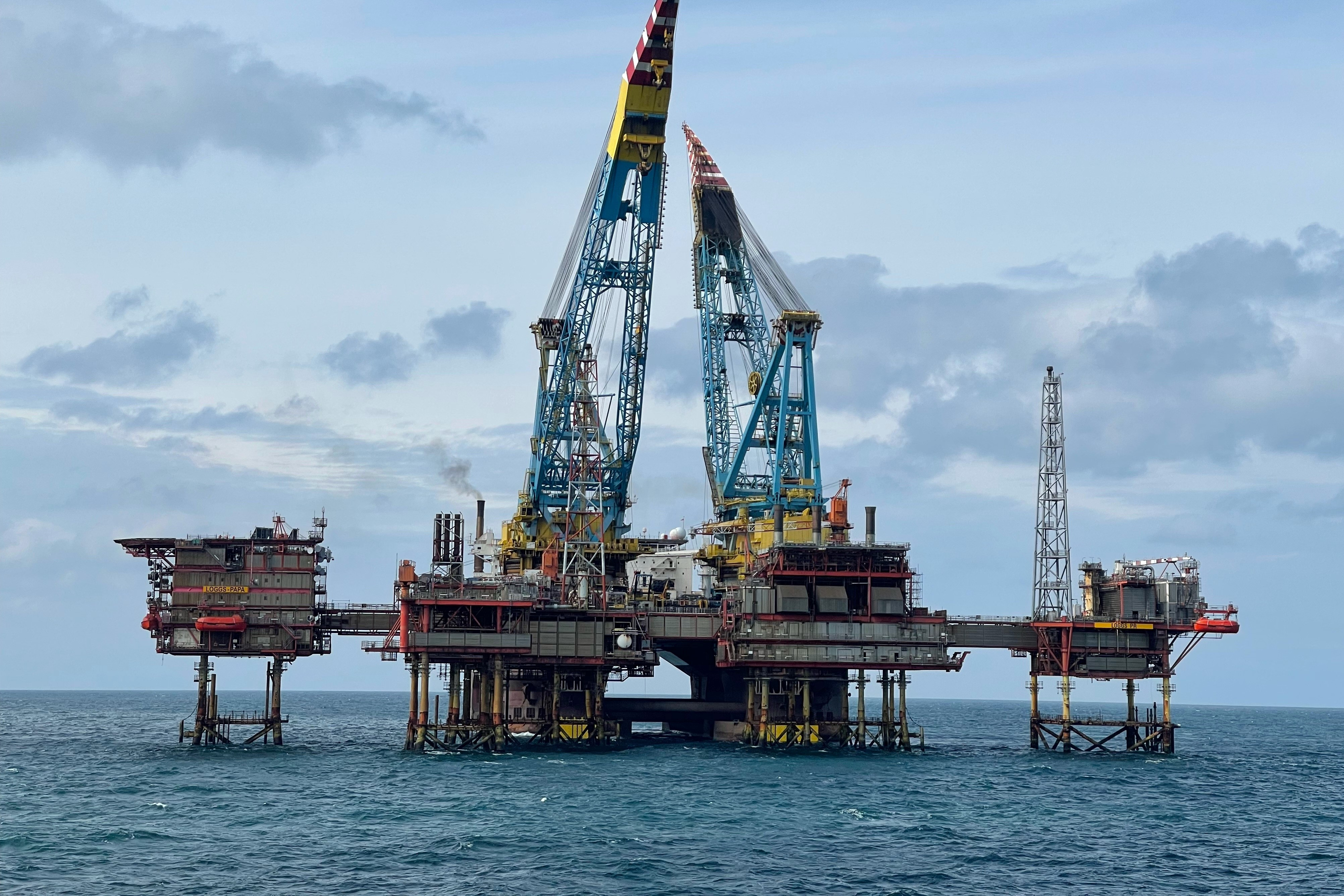Oil and gas giant Harbour Energy warns against tougher windfall tax
Its chief executive said extra taxes would ‘run the risk of undermining’ investments.

Your support helps us to tell the story
From reproductive rights to climate change to Big Tech, The Independent is on the ground when the story is developing. Whether it's investigating the financials of Elon Musk's pro-Trump PAC or producing our latest documentary, 'The A Word', which shines a light on the American women fighting for reproductive rights, we know how important it is to parse out the facts from the messaging.
At such a critical moment in US history, we need reporters on the ground. Your donation allows us to keep sending journalists to speak to both sides of the story.
The Independent is trusted by Americans across the entire political spectrum. And unlike many other quality news outlets, we choose not to lock Americans out of our reporting and analysis with paywalls. We believe quality journalism should be available to everyone, paid for by those who can afford it.
Your support makes all the difference.North Sea oil and gas giant Harbour Energy has urged the Government to “carefully consider” a tougher windfall tax on energy producers, warning it could stymie the firm’s investment plans.
Linda Z Cook, chief executive of the UK’s largest oil and gas producer, warned extra taxes would “run the risk of undermining” investments.
It comes as Prime Minister Rishi Sunak and Chancellor Jeremy Hunt prepare to unveil tax rises in a November 17 autumn statement in order to address a potentially £50 billion fiscal black hole.
It has been mooted that the Government plans a roughly £40 billion raid on energy firms and banks through windfall taxes.
Harbour said it will face a 400 million US dollar (£357 million) hit this year as a result of the Energy Profits Levy windfall tax launched in May, as part of its overall 900 million US dollars (£804 million) UK tax bill.
Ms Cook said: “The recently enacted UK Energy Profits Levy (EPL) and speculation about further fiscal changes have created uncertainty for independent oil and gas companies like Harbour.
We urge the Government to carefully consider the consequences of any increase in or extension of the EPL (windfall tax)
“As a result, evaluating expected returns from long-term investments has become more difficult and investors are advocating for geographic diversification.
“While we fully recognise the significant challenge in the UK to put public finances on a sustainable footing, we urge the Government to carefully consider the consequences of any increase in or extension of the EPL.
“At a time when oil and gas producers are being asked to invest more to help ensure the UK’s energy security and are considering longer term, material investments in CCS (carbon capture and storage), additional taxes would run the risk of undermining our ability to do either.”
It came as the energy business confirmed it has handed out 500 million US dollars (£446 million) to shareholders in dividend payments so far this year after revenues were jolted higher by rising wholesale prices.
Harbour recorded revenues of 4.1 billion US dollars (£3.7 billion) over the nine months to September, although it highlighted it sold its oil and gas below market rates due to hedging from customers.
The firm also said it would spend less on capital investment this year than previously expected due to “the late arrival of drilling rigs and the weaker pound” against the dollar.
Nevertheless, shares moved 3.8% higher on Thursday.